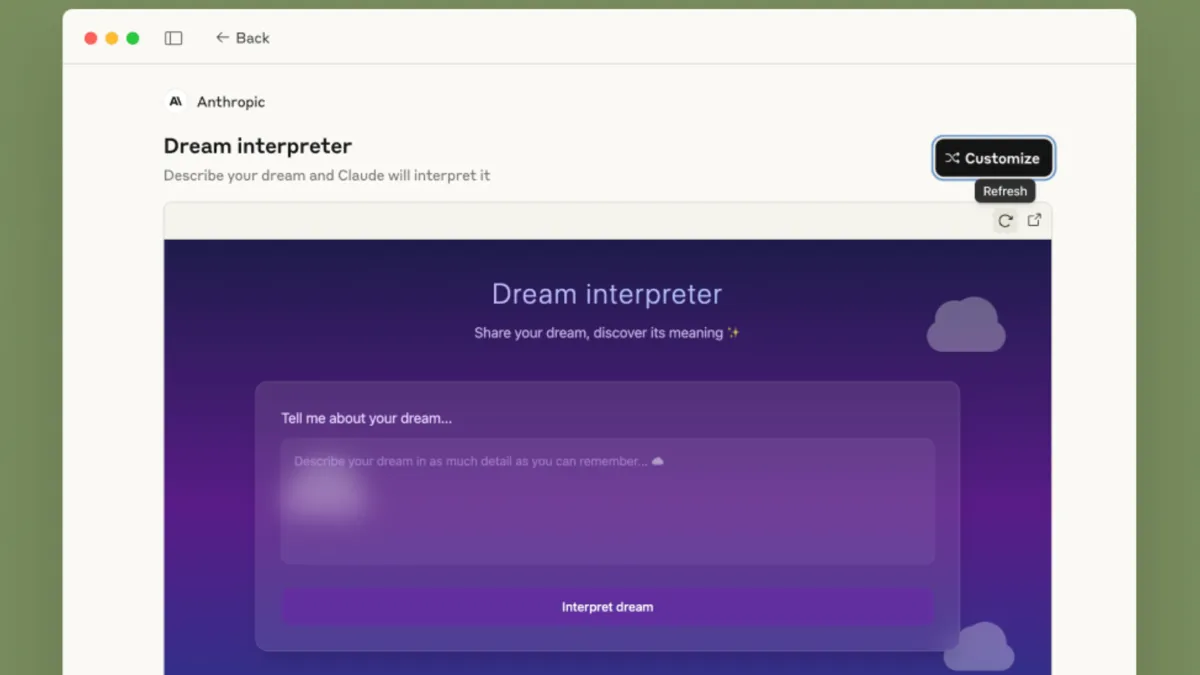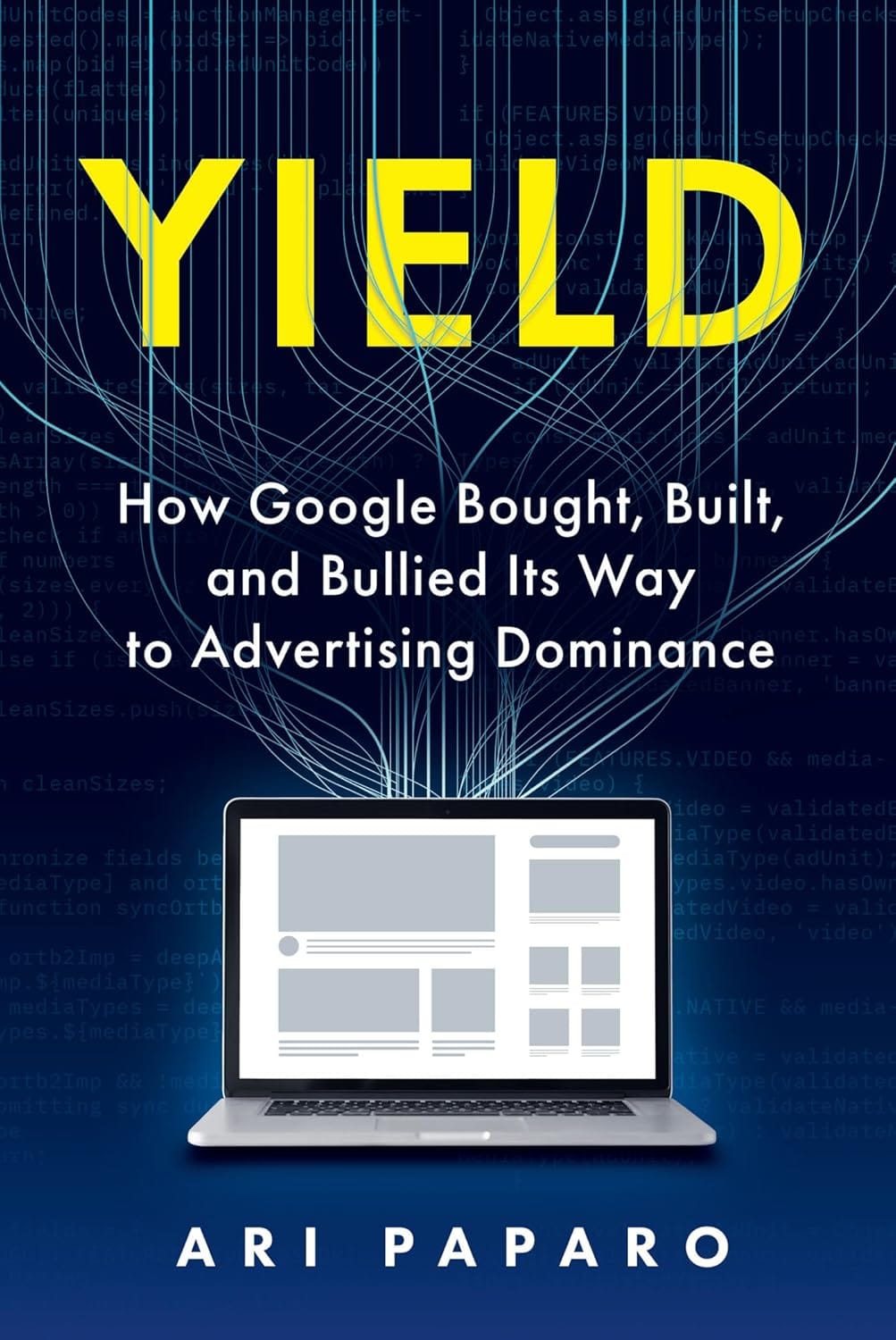
Anthropic announced on June 25, 2025, the expansion of its artifacts feature within Claude to support AI-powered application development. The enhancement transforms artifacts from static outputs into interactive applications that embed Claude's intelligence directly within user-created tools.
According to the company's official announcement, millions of users have created over half a billion artifacts since the feature's initial launch. The new capability enables users to build applications that process user input and adapt content in real-time without ongoing conversations with Claude.
The artifacts system operates through a dedicated workspace where AI-generated content becomes immediately functional and shareable. When someone uses your Claude-powered app: They authenticate with their existing Claude account, their API usage counts against their subscription, not yours, you pay nothing for their usage, no one needs to manage API keys.
Get the PPC Land newsletter ✉️ for more like this.
Summary
Who: Anthropic announced the enhancement; millions of users across Free, Pro, and Max plans can access the feature; early adopters have created AI-powered games, learning tools, and data analysis applications
What: Expansion of Claude's artifacts feature to enable creation of AI-powered applications that embed Claude's intelligence directly within user-created tools, eliminating deployment complexity and enabling cost-free sharing
When: Announced June 25, 2025, available in beta immediately to Free, Pro, and Max plan users
Where: Available within Claude's web application across all supported regions, accessible through dedicated artifacts space in sidebar
Why: Addresses growing demand for no-code application development, democratizes AI-powered tool creation, and positions Anthropic competitively against platforms focusing on conversational agents rather than functional applications
Technical implementation removes deployment barriers
The platform eliminates traditional software development complexity by handling infrastructure, authentication, and API management automatically. Claude writes real code that orchestrates complex AI functionality. You can see it, modify it, and share it freely.
According to Anthropic's documentation, users can create applications by describing their requirements to Claude in natural language. The system generates functional code that incorporates React components, file processing capabilities, and Claude API integration without requiring programming knowledge.
Early users have already used interactive artifacts to build: AI-powered games with NPCs that remember conversations and adapt to player choices, learning tools that adjust to individual skill levels and provide personalized tutoring, data analysis apps where users upload CSVs and ask follow-up questions in natural language, writing assistants that help with everything from scripts to technical documentation, agent workflows that orchestrate multiple Claude calls for complex tasks.
Availability spans subscription tiers
The capability launched in beta across Free, Pro, and Max plan users. Free users can create, view, and interact with artifacts, while Pro ($20/month) and Team ($25-30/month) subscribers gain additional capabilities and higher usage limits.
According to VentureBeat's analysis, the company views free access as a customer acquisition strategy, with Anthropic representatives noting that "free users experiencing the magic of creating with Claude become our best advocates".
The economic model distributes computational costs across user subscriptions rather than creating infrastructure strain from popular applications. When users access shared artifacts, their individual usage limits apply rather than impacting the creator's account.
Market positioning against competitors
While OpenAI's GPT Store focuses on conversational agents, Anthropic emphasizes functional applications with user interfaces. The approach represents a strategic differentiation in the competitive AI assistant market.
According to industry analysis, Gartner research shows that 70% of new applications will use low-code or no-code technologies by 2025, representing a massive jump from just 25% in 2020. This transformation creates what analysts call "citizen developers" — business users who create applications without formal programming knowledge.
The artifacts enhancement addresses this trend by providing tools that enable application development through conversational interfaces. Users describe functionality requirements, and Claude generates working applications with user interfaces and embedded AI capabilities.

Yield: How Google Bought, Built, and Bullied Its Way to Advertising Dominance
A deeply researched insider’s account of Google’s epic two-decade campaign to dominate online advertising by any means necessary.
Current limitations and future development
The beta release includes specific technical constraints. Current limitations: No external API calls (yet), no persistent storage, limited to a text-based completion API.
These restrictions limit applications to Claude's internal capabilities and prevent integration with external services or long-term data storage. Users cannot build applications that connect to databases, third-party APIs, or maintain state between sessions.
Despite these limitations, the platform supports sophisticated functionality through React components and file processing. Users can create data visualization tools, educational applications, and interactive utilities that operate within Claude's infrastructure.
User experience and adoption patterns
The artifacts space provides curated collections organized by categories including learning tools, productivity applications, creative projects, and games. Users can browse existing artifacts, customize them for specific needs, or create entirely new applications from scratch.
According to Anthropic, millions of users have created more than 500 million "artifacts" — interactive content ranging from educational games to data analysis tools — since the feature's initial launch.
The platform emphasizes ease of use through natural language interaction. Users describe their requirements in conversational terms, and Claude generates functional applications with working interfaces. The system handles technical details including prompt engineering, error handling, and orchestration logic automatically.
Industry impact for marketing professionals
The development creates new opportunities for marketing teams to develop custom tools without technical resources. Campaign managers could build audience analysis tools, content generators, or performance dashboards through conversational interfaces.
Recent platform integrations enable Claude to connect with marketing platforms through Zapier, automatically pulling sales data from HubSpot and preparing meeting briefs based on calendar entries. These capabilities complement the artifacts system by providing data access for custom applications.
The ability to create shareable tools addresses common marketing challenges including repetitive analysis tasks, content generation workflows, and client reporting requirements. Teams can develop specialized applications for specific campaigns or client needs without engaging development resources.
For agencies managing multiple clients, the artifacts system enables creation of branded tools and interactive presentations. The cost-free sharing model eliminates concerns about usage fees when distributing applications to clients or team members.
Technical architecture and development approach
The artifacts system operates within Anthropic's infrastructure using a dedicated API layer for Claude integration. Applications run as React components with access to Claude's text-based completion API for dynamic content generation.
The architecture eliminates traditional deployment complexity by managing hosting, authentication, and scaling automatically. Users focus on application logic and user experience while Anthropic handles technical infrastructure.
Code generation occurs through conversational interaction, with Claude translating user requirements into functional React components. The system maintains version control, enabling users to iterate on applications through continued conversation with Claude.
Applications share infrastructure resources efficiently by leveraging Anthropic's existing platform capabilities. The model distributes costs across user subscriptions rather than requiring dedicated hosting or payment processing systems.
Future expansion and platform development
The business model reflects broader industry trends toward freemium AI services, where basic functionality attracts users who eventually upgrade for enhanced features. Unlike traditional software marketplaces where creators might monetize applications, the platform emphasizes free sharing to build community engagement.
The artifacts system represents a foundation for expanded capabilities as Anthropic addresses current limitations. Future development could include external API integration, persistent storage, and expanded AI capabilities beyond text-based completion.
For marketing professionals, these enhancements suggest opportunities for more sophisticated applications including CRM integration, real-time data analysis, and cross-platform automation. The conversational development model could democratize custom software creation within marketing organizations.
The platform's emphasis on community sharing and customization creates potential for industry-specific template libraries. Marketing teams could access pre-built applications for common use cases while maintaining ability to customize for specific requirements.
Timeline
- August 2024: Anthropic officially rolled out Artifacts to all Claude.ai users, enhancing creative and collaborative potential across Free, Pro, and Team plans
- October 22, 2024: Claude introduces computer use capability in public beta, enabling AI to interact with computers through cursor movement, clicking, and typing
- February 10, 2025: Anthropic Economic Index study reveals AI usage across 36% of occupations, with computer-related tasks seeing largest AI usage at 37.2% of queries
- April 9, 2025: Anthropic launches new Max plan for Claude AI, offering up to 20x more usage for power users with enhanced artifact capabilities
- May 1, 2025: Anthropic unleashes Claude integration tool to transform productivity, connecting Claude to workplace software through new Integrations feature
- May 25, 2025: Anthropic launches free prompt engineering course, providing comprehensive training for professionals using AI tools
- June 25, 2025: Anthropic announces AI-powered artifacts capability, enabling users to create interactive applications with embedded Claude intelligence


